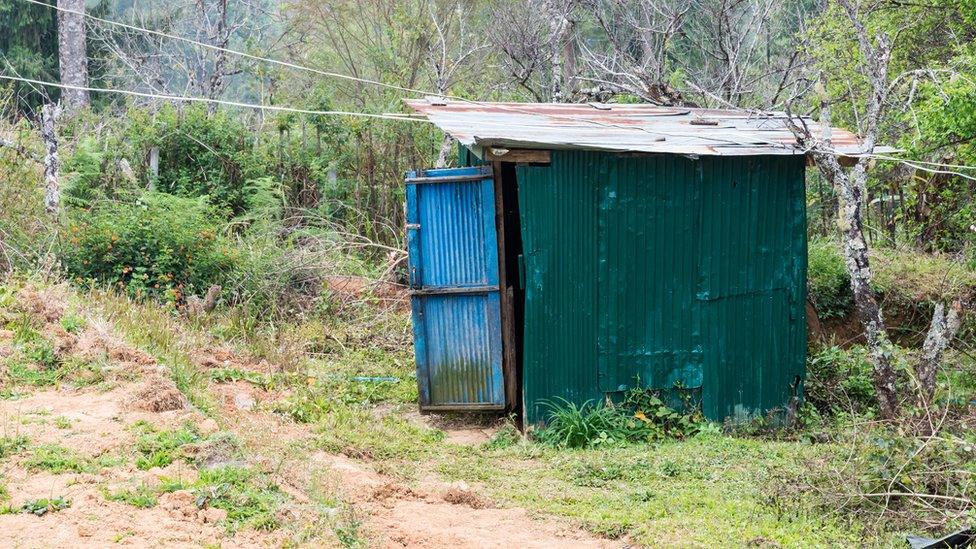El Salvador: Woman faces retrial after baby died in toilet birth
- Published
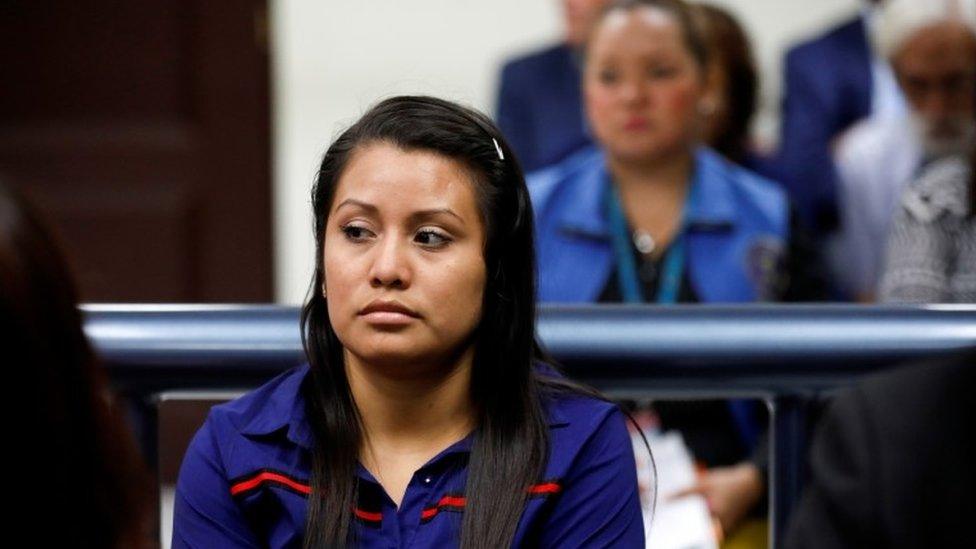
Evelyn Hernández is facing a retrial for homicide
A woman in El Salvador whose baby was found dead in the toilet where she gave birth is facing a retrial on charges of homicide.
Evelyn Beatríz Hernández Cruz, 21, was originally sentenced to 30 years in prison in 2017 but was released following an appeal.
She says she did not know she was pregnant and lost consciousness during the birth.
Initially accused of abortion, she was eventually found guilty of homicide.
Abortion is illegal in El Salvador and those found guilty face between two and eight years in jail.
But in many cases, including the one against Ms Hernández, the charge is changed to one of aggravated homicide, which carries a minimum sentence of 30 years.
What happened?
Evelyn Hernández says she experienced severe stomach pains and bleeding while at her home in rural El Salvador on 6 April 2016.
"I did not know I was pregnant"
She went to the toilet, located in an outhouse, where she fainted. Her mother took her to a hospital, where doctors found she had given birth.
She was arrested after the body of her baby was found in the toilet's septic tank.
Ms Hernández, who was 18 at the time, says she had been raped by a gang member but that she had no idea that she was pregnant.
She said she had confused the symptoms of pregnancy with stomach ache because she had experienced intermittent bleeding, which she thought was her menstrual period.
"If I'd known I was pregnant I would have awaited [the birth] with pride and joy," she has said in the past.
She also said that while she had "felt something come loose" inside her, she did not hear a baby cry out and did not realise she was giving birth.
What were the charges?
Ms Hernández was charged with aggravated homicide in 2017.
Prosecutors said that she had hidden her pregnancy and not sought antenatal care and while they said they could not establish whether the baby was alive at birth, they argued that Ms Hernández had committed murder.
The judge ruled that Ms Hernández knew she was pregnant and found her guilty of aggravated homicide. She was sentenced to 30 years in prison in July 2017.
Why is there a retrial?
Ms Hernández lawyers appealed against the judge's decision.
The defence lawyers said that forensic test showed that the baby had died of meconium aspiration, inhaling his own early stool. This can happen while the baby is still in the uterus, during delivery or immediately after birth.
The lawyers said that the test proved that Ms Hernández had not tried to abort the baby but that it had died of natural causes. "There is no crime," defence lawyer Bertha María Deleón said.
However, her conviction was confirmed by another court in October 2017 so her lawyers took their appeal to the country's supreme court.
In February 2019, the supreme court annulled the 2017 conviction citing absence of evidence and ordered a retrial with a new judge.
Ms Hernández was released from jail pending the retrial.
What is the latest?
Ms Hernández's lawyers say prosecutors on Monday changed the charges levelled against her from aggravated homicide to manslaughter.
Going into the trial on Monday, Ms Hernández said she was innocent and that she had trust "in God and my lawyers".
Why is the case significant?
Rights organisations in El Salvador says there are still at least 20 other women in jail under the country's strict abortion laws.
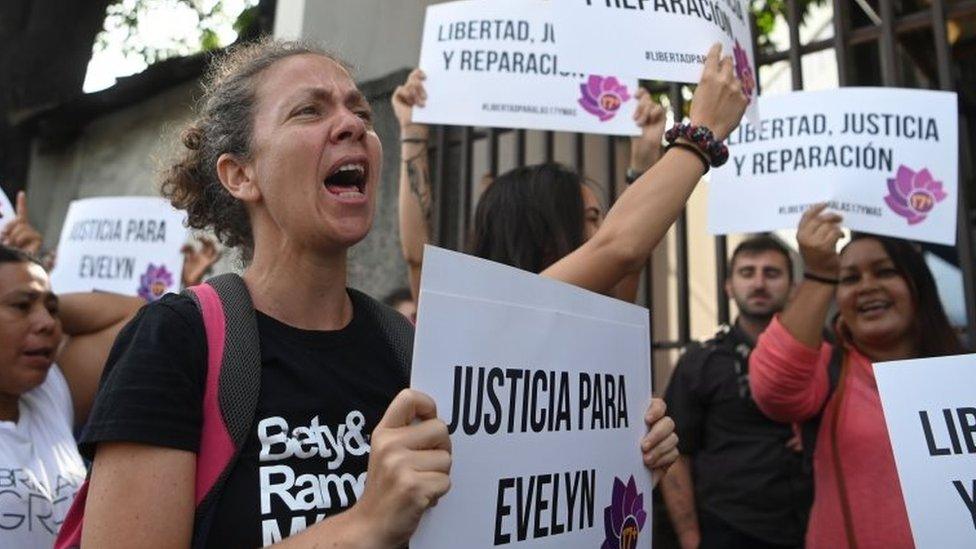
Campaigners gathered outside the court to demand justice for Evelyn Hernández
Over the last decade, campaigners have managed to free around 30 through evidence reviews. A retrial verdict in Ms Hernández's favour would give those still in jail hope their convictions could also be overturned.
The retrial comes just six weeks after new President Nayib Bukele took office and women's groups are hoping he could usher in a more lenient stance on the issue.
- Published28 April 2015
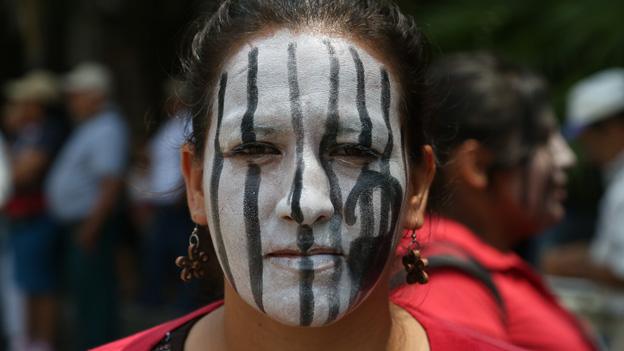
- Published16 February 2019
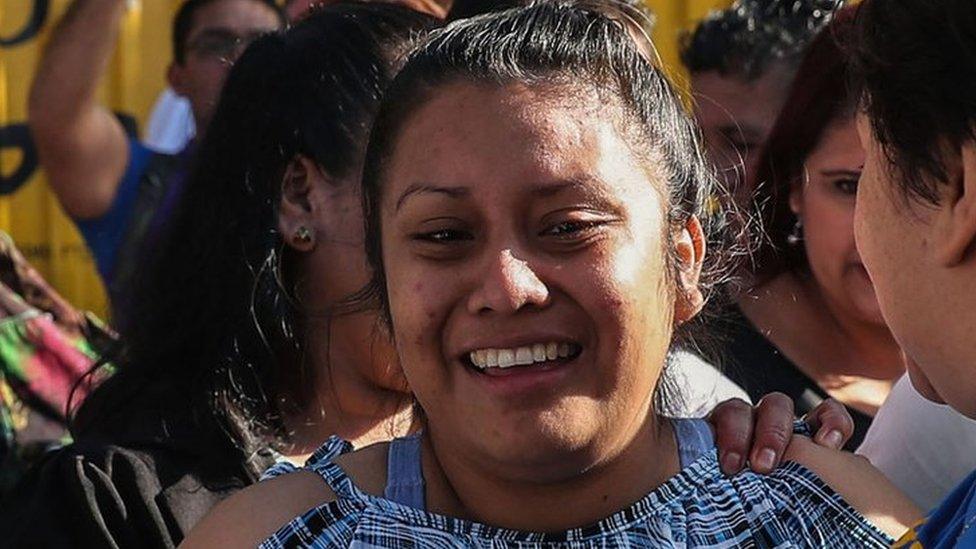
- Published7 July 2017
